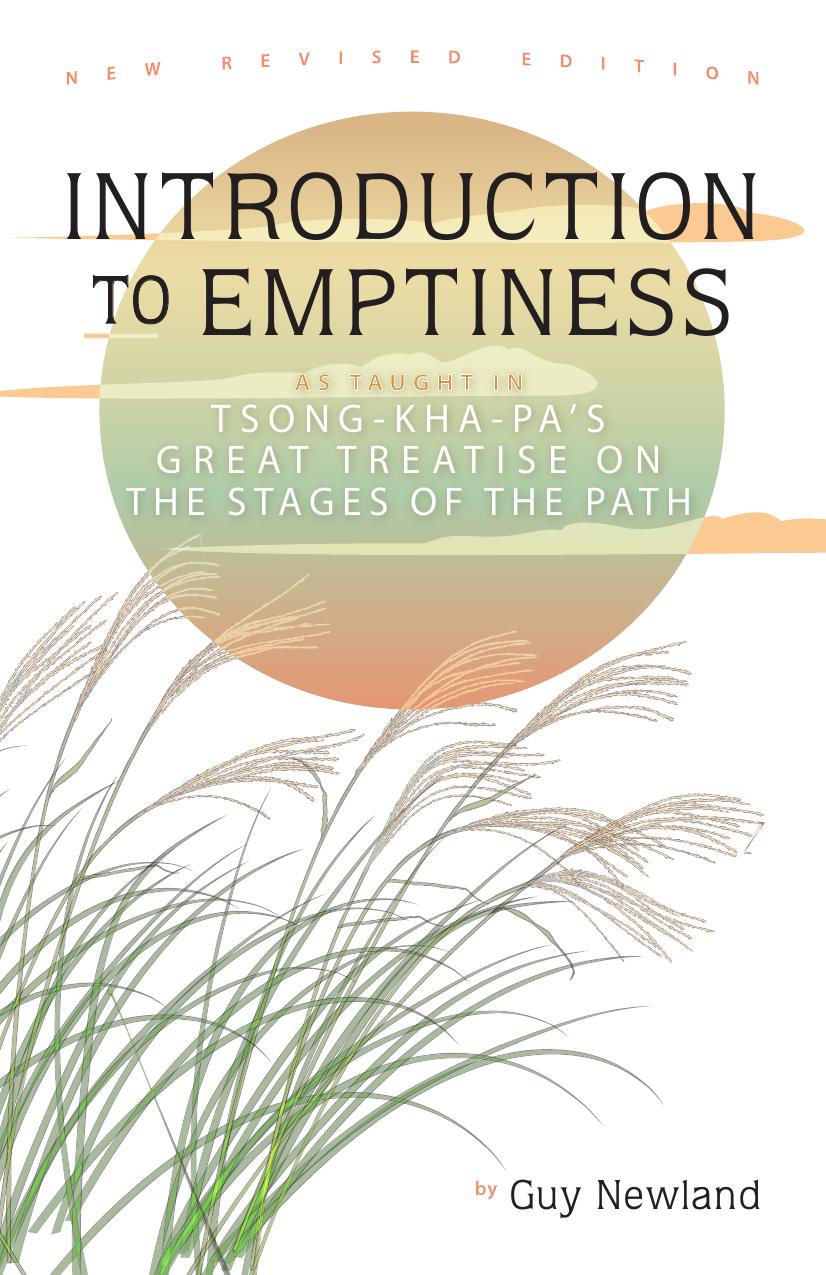Introduction to Emptiness: As Taught in Tsong-Kha-Pa's Great Treatise on the Stages of the Path by Guy Newland

Author:Guy Newland
Language: eng
Format: azw3, pdf
Publisher: Snow Lion Publications
Published: 2008-02-08T00:00:00+00:00
Some Hinayana Buddhist philosophers say, "Yes, we do." They catalog the elemental particles and regard them alone as ultimately real, irreducible. Everything else-tables, etc.-they regard as conventional because these are just names we apply to reducible composites, collections of particles.
Along with other Mahayana Buddhist philosophers, Madhyamikas refute any notion of a partless particle. If an object takes up any space at all, then we can imagine its eastern and western sides. These two sides are parts, and the particle-no matter how small-is therefore not irreducible. It is a composite of its parts. On the other hand, if the particle occupies no space at all, then how can we ever use it to construct a composite thing like a table? Even if we have billions or trillions of particles, if each one takes up no space, we will never be able to build a visible and tangible object.
So, another argument Madhyamikas might make against intrinsic nature would be: "If school buildings existed by way of their own intrinsic nature, then they would not depend upon parts." It is easier to see that buildings depend on parts than it is to realize their emptiness! And depending on parts certainly contradicts the mistaken idea of something's existing in and of itself. But again: Simply knowing that something depends on parts is not the same as realizing its emptiness.
It is important to know very clearly that things change, depend on causes, and depend on parts. Such wisdom protects us from mistaken philosophies and undermines our tendencies to cling. But even more important is the fact that these understandings guide us toward the deeper and liberating truth that they imply: that all things are empty. We are not born with some idea of "partless particles" or "indivisible building blocks." Nor are we born with the idea of an uncaused divine Being who caused the world to exist. These ideas are acquired through culture; they are not the root source of our suffering in cyclic existence. They are simply branches or twigs that have grown, nourished from that root. If we only prune off some branches, new branches will grow.
Download
Introduction to Emptiness: As Taught in Tsong-Kha-Pa's Great Treatise on the Stages of the Path by Guy Newland.pdf
This site does not store any files on its server. We only index and link to content provided by other sites. Please contact the content providers to delete copyright contents if any and email us, we'll remove relevant links or contents immediately.
The Way of Zen by Alan W. Watts(6601)
Ego Is the Enemy by Ryan Holiday(5417)
The Art of Happiness by The Dalai Lama(4125)
The Book of Joy by Dalai Lama(3976)
Why Buddhism is True by Robert Wright(3447)
Spark Joy by Marie Kondo(3299)
Shift into Freedom by Loch Kelly(3194)
Happiness by Matthieu Ricard(3040)
A Monk's Guide to a Clean House and Mind by Shoukei Matsumoto(2912)
The Lost Art of Good Conversation by Sakyong Mipham(2651)
The Meaning of the Library by unknow(2565)
The Unfettered Mind: Writings from a Zen Master to a Master Swordsman by Takuan Soho(2309)
The Third Eye by T. Lobsang Rampa(2260)
Anthology by T J(2210)
Red Shambhala by Andrei Znamenski(2193)
The Diamond Cutter by Geshe Michael Roach(2058)
Thoughts Without A Thinker: Psychotherapy from a Buddhist Perspective by Epstein Mark(2014)
Twilight of Idols and Anti-Christ by Friedrich Nietzsche(1892)
Advice Not Given by Mark Epstein(1878)
